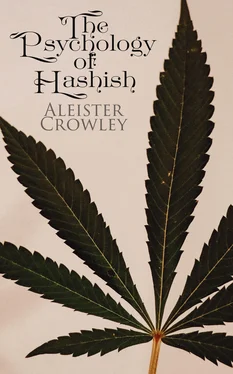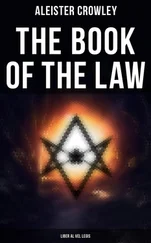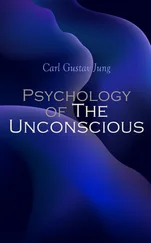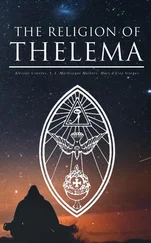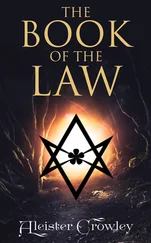Aleister Crowley - The Psychology of Hashish
Здесь есть возможность читать онлайн «Aleister Crowley - The Psychology of Hashish» — ознакомительный отрывок электронной книги совершенно бесплатно, а после прочтения отрывка купить полную версию. В некоторых случаях можно слушать аудио, скачать через торрент в формате fb2 и присутствует краткое содержание. Жанр: unrecognised, на английском языке. Описание произведения, (предисловие) а так же отзывы посетителей доступны на портале библиотеки ЛибКат.
- Название:The Psychology of Hashish
- Автор:
- Жанр:
- Год:неизвестен
- ISBN:нет данных
- Рейтинг книги:3 / 5. Голосов: 1
-
Избранное:Добавить в избранное
- Отзывы:
-
Ваша оценка:
- 60
- 1
- 2
- 3
- 4
- 5
The Psychology of Hashish: краткое содержание, описание и аннотация
Предлагаем к чтению аннотацию, описание, краткое содержание или предисловие (зависит от того, что написал сам автор книги «The Psychology of Hashish»). Если вы не нашли необходимую информацию о книге — напишите в комментариях, мы постараемся отыскать её.
The Psychology of Hashish — читать онлайн ознакомительный отрывок
Ниже представлен текст книги, разбитый по страницам. Система сохранения места последней прочитанной страницы, позволяет с удобством читать онлайн бесплатно книгу «The Psychology of Hashish», без необходимости каждый раз заново искать на чём Вы остановились. Поставьте закладку, и сможете в любой момент перейти на страницу, на которой закончили чтение.
Интервал:
Закладка:
Aleister Crowley
The Psychology of Hashish
e-artnow, 2021
Contact: info@e-artnow.org
EAN 4064066499754
Table of Content
Chapter I
Chapter II
Chapter III
Chapter IV
Chapter V
Chapter VI
Chapter VII
Chapter VIII
Chapter IX
Chapter X
Chapter XI
Chapter XII
Chapter XIII
Chapter XIV
Chapter XV
Chapter XVI
Chapter XVII
Chapter XVIII
Chapter XIX
Chapter XX
Footnotes
Chapter I
Table of Contents
“The girders of the soul, which give her breathing, are easy to be unloosed... Nature teaches us, and the oracles also affirm, that even the evil germs of matter may alike become useful and good.”
— ZOROASTER.
Comparable to the Alf Laylah wa Laylah itself, a very Tower of Babel, partaking alike of truth both gross and subtle inextricably interwoven with the most fantastic fable, is our view of the Herb — Hashish — the Herb Dangerous. Of the investigators who have pierced even for a moment the magic veil of its glamour ecstatic many have been appalled, many disappointed. Few have dared to crush in arms of steel this burning daughter of the Jinn; to ravish from her poisonous scarlet lips the kisses of death, to force her serpent-smooth and serpent-stinging body down to some infernal torture-couch, and strike her into spasm as the lightning splits the cloud-wrack, only to read in her infinite sea-green eyes the awful price of her virginity — black madness.
Even supreme Richard Burton, who solved nigh every other riddle of the Eastern Sphinx, passed this one by. He took the drug for months “with no other symptom than increased appetite,” and in his general attitude to hashish-intoxication (spoken of often in the “Nights”) shows that he regards it as no more than a vice, and seems not to suspect that, vice or no, it had strange fruits; if not of the Tree of Life, at least of that other Tree, double and sinister and deadly....
Nay! for I am of the Serpent’s party: Knowledge is good, be the price what it may.
Such little fruit, then, as I may have culled from her autumnal breast (mere unripe berries, I confess!) I hasten to offer to my friends.
And lest the austerity of such a goddess be profaned by the least vestige of adornment I make haste to divest myself of whatever gold or jewelry of speech I may possess, to advance, my left breast bare, without timidity or rashness, into her temple, my hoped reward the lamb’s skin of a clean heart, the badge of simple truthfulness and the apron of Innocence.
In order to keep this paper within limits, I may premise that the preparation and properties of Cannabis indica can be studied in the proper pharmaceutical treatises, though, as this drug is more potent psychologically than physically, all strictly medical account of it, so far as I am aware, have been hitherto both meagre and misleading. Deeper and clearer is the information to be gained from the brilliant studies by Baudelaire, unsurpassed for insight and impartiality, and Ludlow, tainted by admiration of de Quincey and the sentimentalists.1
My contribution to the subject will therefore be strictly personal, and so far incomplete; indeed in a sense valueless, since in such a matter personality may so largely outweigh all other factors of the problem. At the same time I must insist that my armour is more complete in several directions than that of my predecessors, inasmuch as I possess the advantage not only of a prolonged psychological training, a solid constitution, a temperament on which hashish acts by exciting perception ( Sañña ), quite unalloyed by sensation ( Vedana ) and a perfect scepticism; but also of more than an acquaintance with ceremonial drunkenness among many nations and with the magical or mystical processes of all times and all races. It may fairly be retorted upon me that this unique qualification of mine is the very factor which most vitiates my results. However...
With the question of intoxication considered as a key to knowledge let me begin, for from that side did I myself first suspect the existence of the drug which (as I now believe) is some sublimated or purified preparation of Cannabis indica .
Chapter II
Table of Contents
“Labour thou around the Strophalos of Hecate.”
— ZOROASTER.
In 1898-1899 I had just left Cambridge and was living in rooms in Chancery Lane, honoured by the presence of Allan Bennett (now Bhikkhu Ananda Metteyya) as my guest.
Together for many months we studied and practised Ceremonial Magic, and ransacked the ancient books and MSS. of the reputed sages for a key to the great mysteries of life and death. Not even fiction was neglected, and it was from fiction that we gathered one tiny seed-fact, which (in all these years) has germinated to the present essay.
Through the ages we found this one constant story. Stripped of its local and chronological accidents, it usually came to this — the writer would tell of a young man, a seeker after the Hidden Wisdom, who, in one circumstance or another, meets an adept; who, after sundry ordeals, obtains from the said adept, for good or ill, a certain mysterious drug or potion, with the result (at least) of opening the gate of the Other-world. This potion was identified with the Elixir Vitæ of the physical Alchemists, or one of their “Tinctures,” most likely the “White Tincture” which transforms the base metal (normal perception of life) to silver (poetic conception), and we sought it by fruitless attempts to poison ourselves with every drug in (and out of) the Pharmacopoeia.
Like Huckleberry Finn’s prayer, nuffin’ come of it.
I must now, like the Baker, skip forty years, or rather eight, and reach a point where my travels in India had familiarised me with their systems of meditation and with the fact that many of the lesser Yogis employed hashish (whether vainly or no we shall discuss later) to obtain Samadhi, that oneness with the Universe, or with the Nothingness, which is the feeble expression by which alone we can shadow that supreme trance. I had also the advantage of falling across Ludlow’s book, and was struck by the circumstance that he, obviously ignorant of Vedantist and Yogic doctrines, yet approximately expressed them, though in a degraded and distorted form.
I was also aware of the prime agony of meditation, the dryness 2 (as Molinos calls it) which hardens and sterilises the soul.
The very practice which should flood it with light leads only to a darkness more terrible than death, a despair and disgust which only too often lead to abandonment, when in truth they should encourage, for that — as the oracles affirm — it is darkest before the dawn.
Meditation therefore annoyed me, as tightening and constricting the soul. I began to ask myself if the “dryness” was an essential part of the process. If by some means I could shake its catafalque of Mind, might not the Infinite Divine Spirit leap unfettered to the Light?
Who shall roll away the stone?
Let it not be imagined that I devised these thoughts from pure sloth or weariness. But with the mystical means then at my disposal, I required a period of days or of weeks to obtain any Result, such as Samadhi in one of its greater or lesser forms; and in England the difficulties were hardly to be overcome. I found it impossible to meditate in the cold, and fires will not last equably. Gas stinks abominably; heating apparatus does not heat; electricity has hitherto not been available. When I build my temple, I shall try it.
The food difficulty could be overcome by Messrs. Fortnum and Mason, the noise difficulty by training, the leisure difficulty by sending all business to the devil, the solitude difficulty by borrowing a vacant flat; but the British climate beat me. I hope one day to be rich enough to build a little house expressly for the purpose; but at present there is on the horizon no cloud even so large as the littlest finger of a man!
Читать дальшеИнтервал:
Закладка:
Похожие книги на «The Psychology of Hashish»
Представляем Вашему вниманию похожие книги на «The Psychology of Hashish» списком для выбора. Мы отобрали схожую по названию и смыслу литературу в надежде предоставить читателям больше вариантов отыскать новые, интересные, ещё непрочитанные произведения.
Обсуждение, отзывы о книге «The Psychology of Hashish» и просто собственные мнения читателей. Оставьте ваши комментарии, напишите, что Вы думаете о произведении, его смысле или главных героях. Укажите что конкретно понравилось, а что нет, и почему Вы так считаете.
